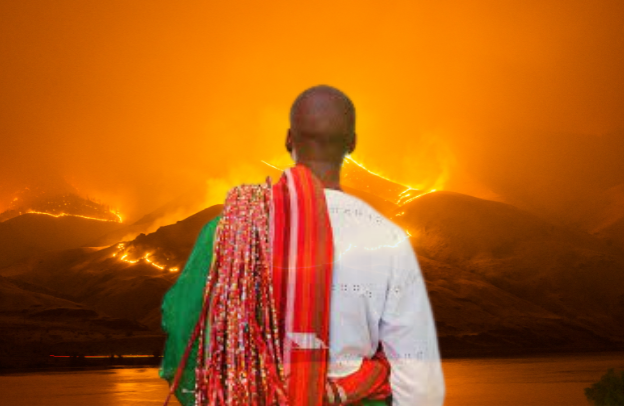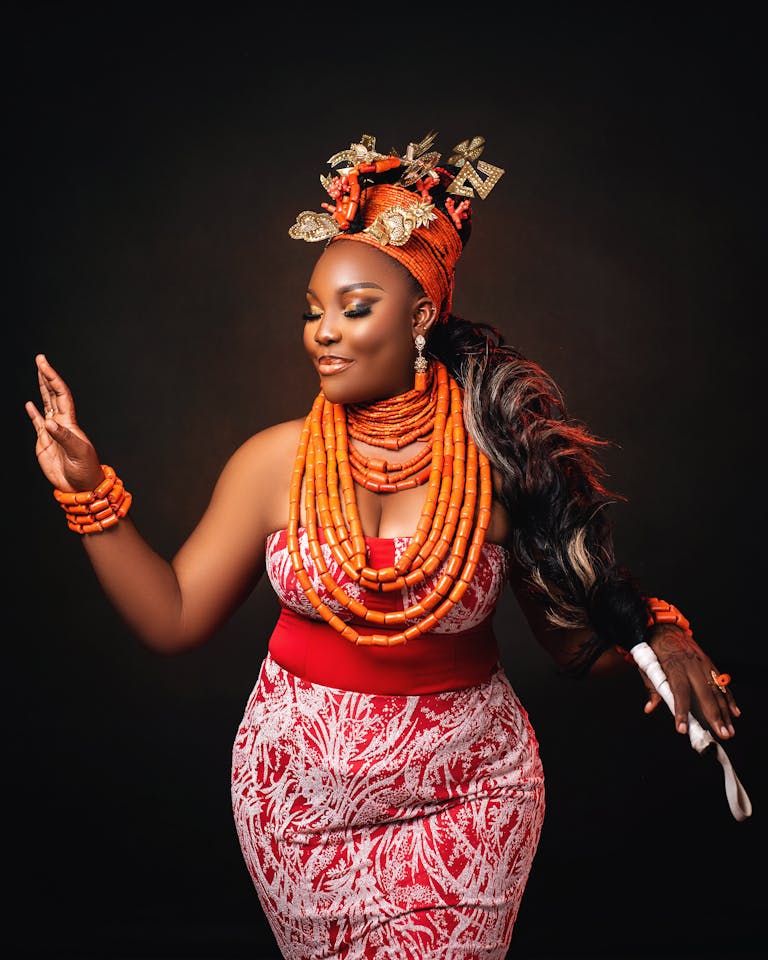African Belief Systems And Its Influence On The Diaspora Community

Recently, I had the privilege of interviewing Dr Tawanda Chabikwa, a Zimbabwean artist researcher, and assistant professor at The University of Texas, El Paso. I must say that I had a lot to learn about African spirituality, his explanation of personhood, and more during the conversation. I believe you will equally gain great when you listen to the video interview below.
Want to learn more about storytelling? Start by downloading the first chapter of The Storytelling Mastery.
As a member of the African diaspora, it’s fundamentally important to pay attention to this conversation and to pass on the message to other people like you. From the spiritual traditions of Yoruba, Vodun, and Akan to the philosophical concepts of Ubuntu and Ma’at, these belief systems have journeyed across continents, shaping the identities and practices of African-descended communities worldwide.
These and more are what Dr. Tawanda Chabikwa will be teaching you in this episode of Obehi Podcast. While we are here, let us take some time to reflect even more on these terms.
African Belief Systems And How Its Influence On The Diaspora With Dr Tawanda Chabikwa
Why are these important to the African diaspora community today
In today’s rapidly evolving world, the importance of embracing African spirituality lies in its profound capacity to offer a holistic framework for understanding existence and navigating the complexities of modern life.
According to Jacob Olupona, professor of indigenous African religions at Harvard Divinity School and professor of African and African-American studies in Harvard’s Faculty of Arts and Sciences, “Indigenous African religions refer to the indigenous or native religious beliefs of the African people before the Christian and Islamic colonization of Africa.”
In the Havard article “The Spirituality of Africa” Jacob added that Indigenous African religions are by nature plural, varied, and usually informed by one’s ethnic identity, where one’s family came from in Africa. For instance, the Yoruba religion has historically been centered in southwestern Nigeria, the Zulu religion in southern Africa, and the Igbo religion in southeastern Nigeria. All these dynamics are important to members of the African diaspora.
With environmental degradation threatening the very foundation of our existence and societal divisions deepening, African spirituality provides a crucial reminder of our interconnectedness with nature and each other, fostering a sense of empathy, compassion, and communal responsibility essential for addressing global challenges.
Remember also that this is a time marked by spiritual disillusionment and disconnection. Therefore, it might be the right time to look towards African spirituality which offers a profound sense of belonging and purpose. It guides individuals on a journey of self-discovery and healing.
By honoring the wisdom of our ancestors and tapping into the timeless truths embedded in African belief systems, we can cultivate a deeper sense of meaning, resilience, and harmony. Not only that. It equally helps to forge a path towards a more just, sustainable, and spiritually fulfilling future.
What is personhood?
The concept of personhood encompasses the multifaceted understanding of what it means to be an individual within a particular cultural, social, and philosophical context. It goes beyond mere biological existence, delving into the complexities of identity, agency, relationships, and societal roles.
In the words of Dr. Tawanda, we are connected to the past, the present, and the future, meaning what we do can reverberate across generations, unlike the simple approach to identity and individuality as often the case in Western society.
In various cultural frameworks, personhood may be defined by factors such as one’s relationship to the community, spiritual beliefs, moral values, and personal experiences. Personhood acknowledges the inherent dignity and autonomy of individuals while recognizing their interconnectedness with others and the broader world.
It is a dynamic and evolving construct shaped by cultural norms, historical legacies, and individual narratives. This helps to highlight the rich diversity of human existence and the importance of respecting and affirming the humanity of every individual.
What is African spirituality?
African spirituality encapsulates a multifaceted and interconnected worldview that emerges from the rich tapestry of Africa’s historical, cultural, and religious heritage. At its core, African spirituality encompasses a holistic understanding of existence, drawing from diverse sources such as folktales, indigenous beliefs, intricate rituals, and the broader fabric of African culture.
You might consider an article by Nylah Burton where she talks about How some Black Americans are finding solace in African spirituality. Nylah Burton is an award-winning travel, entertainment, and lifestyle writer with bylines in New York Magazine, Travel + Leisure, and Vogue.
Embedded within African spirituality is a profound reverence for the interconnectedness of all life forms. I am talking about an acknowledgment of the spiritual essence which are imbued within nature and a deep respect for ancestral wisdom.
This is a circle of life and a river flowing unto itself. So, seek to understand your role in this long and perpetual journey of life.
It is a dynamic and evolving framework that embraces the diversity of African traditions while emphasizing the importance of harmony, balance, and communal well-being. Are you a person of African descent, maybe living in Western countries? You need to learn more about these belief systems and there are advantages for you if you do.
It serves as a means of reclaiming identity, healing historical traumas inflicted by colonization and slavery, and fostering a sense of belonging and empowerment. By embracing the spiritual practices and wisdom of their ancestors, individuals of the African diaspora can tap into a source of resilience, strength, and cultural continuity.
Another thing you will understand is that African spirituality offers a counter-narrative to dominant Western paradigms, challenging oppressive systems and providing alternative frameworks for understanding the Africans and the diaspora community.
Through learning about African spirituality, the diaspora can forge deeper connections with their heritage, and cultivate a sense of pride and agency. It helps also to contribute to the revitalization and preservation of diverse African traditions for generations to come. With that understood, let’s talk about ways to celebrate African Belief Systems in the diaspora.
How to celebrate African Belief Systems in the diaspora
The following is from a publication: Embodying Black Religions in Africa and Its Diasporas, “Other approaches to memory in African and African diasporic religions highlight embodied practices and belief systems as ways to actively reestablish connections to ancestors and specific geographic and linguistic spaces”
The cited publication is a cocreated work involving different scholars: Jacob K. Olupona, Harvard University, Dianne M. Stewart, Emory University, and Terrence L. Johnson, Georgetown University.
Now, this is the question: You are in the diaspora, how do celebrate African spirituality and Belief Systems? Well, here are some recommendations.
Cultural Festivals and Events:
Organize or participate in cultural festivals and events that celebrate African spirituality and belief systems. These events can include traditional music and dance performances, storytelling sessions, art exhibitions featuring African symbolism and themes, and workshops on African spiritual practices such as drumming, meditation, or ancestral veneration.
By coming together in community gatherings, people in the diaspora can reconnect with their cultural heritage and deepen their understanding and appreciation of African belief systems.
See also Dr. Luyaluka’s Talks About The Unity Of African Traditional Religion.
Education and Awareness Campaigns:
Launch educational initiatives and awareness campaigns to promote understanding and respect for African spirituality within the diaspora and broader society. This could involve organizing seminars, lectures, or panel discussions featuring scholars, practitioners, and community leaders who can provide insights into the history, philosophy, and significance of African belief systems.
Additionally, creating online resources, such as blogs, podcasts, or social media pages, can help disseminate accurate information and dispel misconceptions about African spirituality, fostering greater acceptance and recognition of its value in contemporary society.
Community Rituals and Ceremonies:
Facilitate community rituals and ceremonies that honor and preserve African spiritual traditions. These may include seasonal celebrations, rites of passage ceremonies, or healing rituals conducted, following African cosmology and belief systems.
By actively participating in these rituals and ceremonies, individuals in the diaspora can strengthen their connection to their ancestral roots, cultivate a sense of belonging and identity, and contribute to the preservation and revitalization of African spiritual heritage for future generations. Are any of these within your reach? I think they are.
African Belief Systems And Unity Of Purpose
At the heart of African spirituality lies a deep respect for nature. Unlike the anthropocentric worldview prevalent in many modern societies, African belief systems recognize the inherent value and interconnectedness of all living beings.
From the human beings organizing their society, the majestic lion prowling the savannah to the humble ant laboring in the earth, each entity is seen as a vital thread in the intricate web of existence. This profound respect for nature instills a sense of harmony and balance, urging us to tread lightly upon the Earth and honor our role as stewards of creation.
Consider checking out our interview on the topic: Religion And Spirituality in Ancient Kemet with Dr. Kiatezua Lubanzadio Luyaluka.
Central to African spirituality is the concept of ubuntu, encapsulating the interconnectedness of humanity. Ubuntu teaches us that we are not isolated individuals but rather integral parts of a larger community.
Our actions reverberate through the collective consciousness, shaping the world around us. This understanding fosters a sense of empathy, compassion, and communal responsibility, urging us to uplift one another and strive for the common good.
This is from a Harvard article, earlier cited “African spirituality simply acknowledges that beliefs and practices touch on and inform every facet of human life, and therefore African religion cannot be separated from the everyday or mundane.”
Conclusion on African Belief Systems And Its Influence On The Diaspora Community
In conclusion, African spirituality is not a relic of the past but a vital force that continues to shape the lives of millions around the world. By embracing its teachings, we can cultivate a deeper connection to ourselves, to one another, and to the world around us.
In doing so, we embark on a journey of self-discovery and transformation, guided by the timeless wisdom of our ancestors. So, learn to navigate the complexities of existence, and heed the ancient whispers of African spirituality. This is why, therein lies the key to our true healing, harmony, and wholeness as a people.
Want to learn more about storytelling? Start by downloading the first chapter of The Storytelling Mastery.





